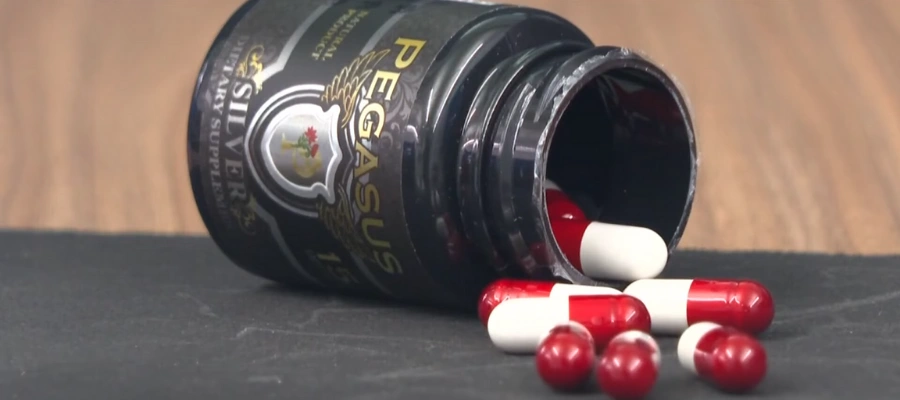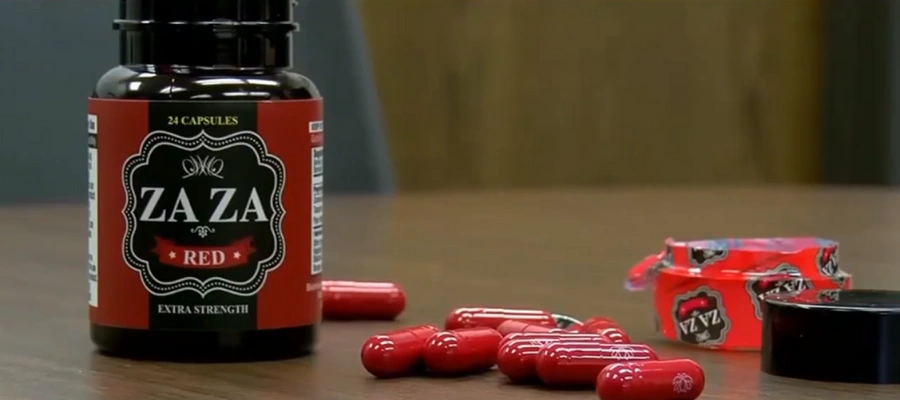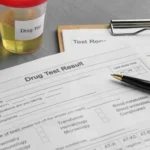Tianeptine Detox in Idaho
Our Rehab and Tianeptine Treatment Programs in Boise, Idaho
Table of Contents
ToggleTianeptine is not approved by the Food and Drug Administration (FDA) for any medical use in the United States.
Despite the risks linked to the unapproved drug, sometimes referred to as “gas station heroin,” tianeptine is easily accessible. This accessibility increases the potential for abuse, serious harm, and fatalities involving tianeptine.
To treat tianeptine abuse, it’s important to understand why people use it. Many people who take tianeptine do it to self-treat symptoms of anxiety or depression. Some people turn to it as an alternative to other substances, like opioid drugs.
If this sounds familiar, know that it is possible to overcome it. With a range of treatment options available, Icarus Wellness and Recovery is here to help individuals and families looking for Tianeptine detox in Idaho heal.
Tianeptine Detox in Idaho
Getting off tianeptine on your own can be very difficult following prolonged use. Like with other drugs, people can experience tianeptine withdrawal with varying levels of severity. Subacute detox services may be suitable for those going through tianeptine withdrawal.
Icarus Wellness can prescribe medication treatments to alleviate withdrawal symptoms in clients during treatment at our centers who do not require a separate detox program.
If you are at risk of severe withdrawal symptoms due to any type of drug or alcohol abuse, we can refer you to a medical detox center. Once you are physically stable and no longer require medically supervised detox, you can transfer to our center for ongoing treatment.
Our Rehab and Tianeptine Treatment Programs in Boise
We provide a full continuum of care for individuals facing tianeptine abuse. Here are our programs and how they can help.
Residential Treatment for Tianeptine Misuse
Residential inpatient treatment for tianeptine misuse provides around-the-clock supervision from staff members. While in this program, you will live on-site at our comfortable treatment center with high-end amenities.
During the day, you’ll participate in a full therapy schedule complete with groups, individual therapy sessions, and other activities.
This level of care is strongly recommended for clients who:
- Do not feel that they can stay off tianeptine (or other drugs) while living at home at this time.
- Feel that a fresh environment and 24/7 access to treatment staff would aid their recovery.
- Would benefit from structured routines and intensive therapy.
Before you leave, our team in Boise will help you make an aftercare plan to support your ongoing recovery from tianeptine use. Ideally, this will involve continued therapy or involvement in an outpatient program.
Partial Hospitalization and Intensive Outpatient Programs
Multiple levels of outpatient care are available to those overcoming tianeptine use and other substance use disorders. Mainly, these include our:
- Partial hospitalization program (PHP): Provides intensive, daily therapy, with a time commitment similar to that of a typical work or school schedule. You can expect to be at our center for most of the day as a PHP client, but you will get to return home (or to sober living) at night.
- Intensive outpatient program (IOP): One step below PHP in intensity. Most clients in IOPs attend treatment a few days per week for shorter sessions, allowing them to balance obligations like work with addiction therapy.
Sometimes, these can act as starting levels of care. Other times, they are part of a step-down approach, helping Icarus Wellness clients transition out of inpatient rehab and back into typical everyday life.
Tianeptine Abuse and Dual Diagnosis Treatment
Dual-diagnosis treatment addresses addiction and co-occurring disorders, like major depressive disorder or anxiety, at the same time. This is associated with positive outcomes, such as an improved quality of life, fewer medication interactions, and an increased chance of successful treatment of both disorders.
Icarus Wellness offers dual-diagnosis treatment at all care levels, including our inpatient and outpatient programs.
Get Effective outpatient Rehab Options at Icarus IDAHO
What are the Typical Tianeptine Withdrawal Symptoms?
Tianeptine withdrawal symptoms are similar to opioid withdrawal symptoms. Upon getting off tianeptine or reducing tianeptine dosage, individuals may experience withdrawal symptoms such as the following.
- Gastrointestinal distress (e.g., nausea, diarrhea, and vomiting).
- High blood pressure.
- Tachycardia.
- Changes in mood.
- Difficulty sleeping.
- Runny nose.
- Headaches.
- Sweating.
- Anxiety.
- Agitation.
- Chest pain.
- Chills.
- Tremors.
Usually, these symptoms onset very rapidly. Since they can be very difficult to get through alone, many people continue taking tianeptine to prevent withdrawal symptoms, even when they know the drug is causing problems in their lives. That is why reaching out to a treatment center like Icarus Wellness is so crucial.
Common Adverse Effects of Tianeptine
Numerous adverse effects are associated with tianeptine (alongside withdrawal upon discontinuation). Possible tianeptine effects reported among individuals who take the drug include:
- Physical dependence and addiction. Many people facing any type of addiction will experience new or worsened legal, financial, physical, social, and psychological health problems as a result.
- Interactions with other substances (e.g., alcohol, other medications). Combining tianeptine with other drugs can increase the risk of overdose deaths.
- Overdose, which can be fatal. Signs of overdose caused by tianeptine toxicity include, but are not limited to trouble breathing, coma, confusion, drowsiness, seizures, rapid heartbeat, and confusion.
- Liver and kidney damage.
- Cardiovascular effects.
According to the Centers for Disease Control, calls to the poison control center related to tianeptine exposures have increased in recent decades. Seeking treatment for tianeptine abuse is worth it and can help you avoid new or worsened tianeptine effects.
Up To 100% of Rehab Costs Covered By Insurance
Call Icarus Wellness and Recovery for Tianeptine Abuse Treatment in Idaho
Icarus Wellness and Recovery is an accredited addiction and mental health treatment center in Boise, Idaho. We are here to support you or your loved one throughout each stage of the tianeptine addiction recovery process, from detox to aftercare.
Please call our admissions line to inquire about our programs today. Our staff members are here to answer your questions, help you start the intake process, or verify your insurance coverage, 100% commitment-free.All calls are strictly confidential, so please get support options now.
FAQs About Tianeptine Detox and Treatment Programs
What type of drug is tianeptine?
Tianeptine is an atypical tricyclic antidepressant. Although the antidepressant tianeptine was initially created to treat depression, it also acts on the brain’s opioid receptors, which can lead to feelings of euphoria and addiction.
Why is getting off tianeptine so hard?
The symptoms of tianeptine withdrawal can be intense and are comparable to those seen on the clinical opiate withdrawal scale, or COWS, assessment. Largely, this is due to how the drug interacts with the opioid receptors in the brain. Although tianeptine detox can be difficult, it is also short-lived.
What are the signs of tianeptine abuse?
Common signs of tianeptine abuse include:
- Taking tianeptine in higher doses than before to achieve the desired effects.
- Using tianeptine despite negative consequences on physical, mental, or social health.
- Using tianeptine despite negative consequences at work or school.
- Continuing to take tianeptine to avoid withdrawal.
This is not a complete list of all of the possible signs of tianeptine abuse. If you think that you might have a problem with tianeptine misuse, it is important to seek help.
How long does tianeptine sulfate stay in your system?
Tianeptine has a short half-life of about 2.5 hours, which is why withdrawal can onset so quickly in those with repeated tianeptine exposures. However, it can be detected via a urine drug screen for up to around 72 hours. Some factors, like renal failure, can influence how long drugs like tianeptine stay in your system.
How to avoid tianeptine withdrawal?
Some people report withdrawal symptoms even if their tianeptine dose is decreased gradually. To treat withdrawals (and to avoid intensified symptoms), individuals can be prescribed several types of medication during the detox process. Antiemetics, intravenous fluids, anti-anxiety medications, and medications used for opioid use disorder (e.g., buprenorphine-naloxone, also known as Suboxone) are possible treatments for tianeptine withdrawal.
Is tianeptine a controlled substance?
According to the Drug Enforcement Administration (DEA), tianeptine is not listed as a controlled substance in the United States as of 2025. However, it is a controlled substance and has been banned in some US states. Additionally, selling or marketing the drug is illegal throughout the US.
What are some other names for tianeptine?
When used as a street drug, “zaza,” “gas station heroin,” and “tia” are common nicknames for tianeptine.
How long do withdrawal symptoms from tianeptine last?
How long your withdrawal symptoms last can vary. Most people getting detox treatment for tianeptine use notice that their symptoms peak during the first couple of days of the withdrawal process and start to improve by around day three. In the following weeks, symptoms should continue to reduce and alleviate.
References
- https://www.fda.gov/consumers/consumer-updates/tianeptine-products-linked-serious-harm-overdoses-death
- https://dig.pharmacy.uic.edu/faqs/2024-2/june-2024-faqs/what-is-tianeptine-and-are-there-recommendations-for-managing-tianeptine-misuse-withdrawal-in-the-medical-setting/
- https://www.drugs.com/illicit/tianeptine.html
- https://www.cdc.gov/mmwr/volumes/67/wr/mm6730a2.htm
- https://pubmed.ncbi.nlm.nih.gov/3180120/
- https://www.deadiversion.usdoj.gov/drug_chem_info/tianeptine.pdf
Recent Post
-
What Time Can You Buy Alcohol in Idaho?
-
15 Recovery Journal Prompts (You Can Really Use!)
-
Is Kratom Legal in Idaho?
-
 Our REBT Therapy Worksheets and PDF
Our REBT Therapy Worksheets and PDF -
Our IFS Therapy Worksheets and PDF Resources
-
What Happens If You Fail A Drug Test on Probation in Idaho or Nationwide?
-
Can You Check Yourself Out of Rehab?
-
How Long Does Alcohol Stay in Saliva?
-
Does Medicaid Cover Rehab in Idaho?
-
Our Cognitive Processing Therapy Worksheets to Support Recovery
-
What Is The Fentanyl Fold?
-
Can BPD Cause Hallucinations and Psychosis?
-
Does Tricare Cover Dual-Diagnosis Treatment?
-
Can You Have BPD and Bipolar Disorder?
-
How Long Does Alcohol-Induced Depression Last?

















